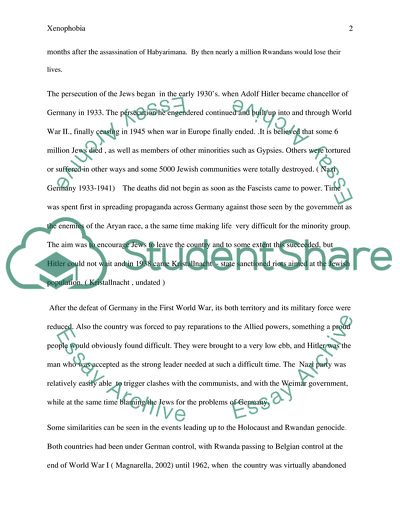Cite this document
(“Xenophobia Essay Example | Topics and Well Written Essays - 1000 words”, n.d.)
Xenophobia Essay Example | Topics and Well Written Essays - 1000 words. Retrieved from https://studentshare.org/english/1578686-xenophobia
Xenophobia Essay Example | Topics and Well Written Essays - 1000 words. Retrieved from https://studentshare.org/english/1578686-xenophobia
(Xenophobia Essay Example | Topics and Well Written Essays - 1000 Words)
Xenophobia Essay Example | Topics and Well Written Essays - 1000 Words. https://studentshare.org/english/1578686-xenophobia.
Xenophobia Essay Example | Topics and Well Written Essays - 1000 Words. https://studentshare.org/english/1578686-xenophobia.
“Xenophobia Essay Example | Topics and Well Written Essays - 1000 Words”, n.d. https://studentshare.org/english/1578686-xenophobia.


